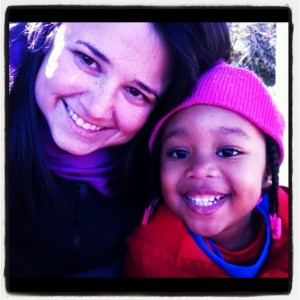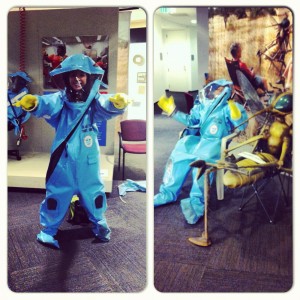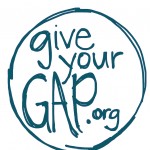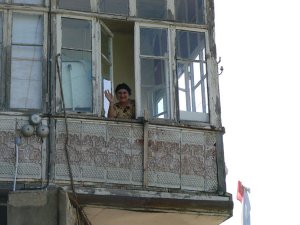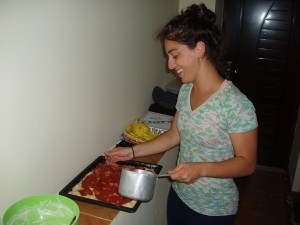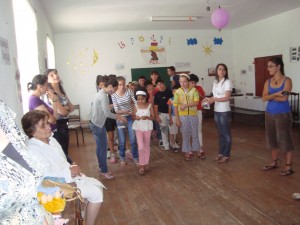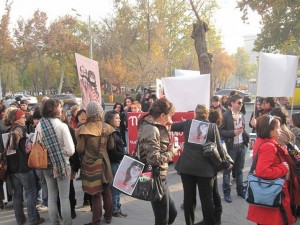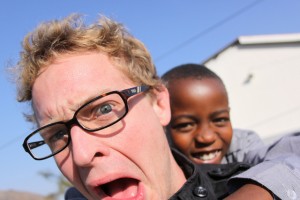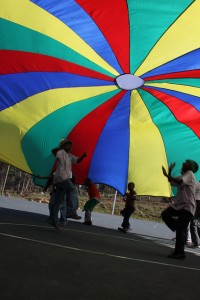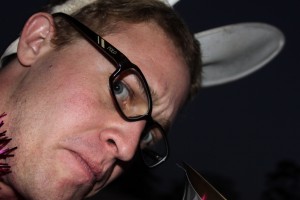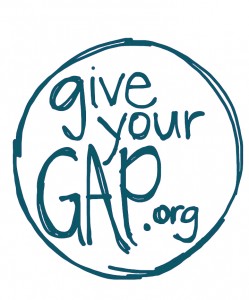 Name: Samantha
Name: Samantha
Type of Work: Medical/Public Health, Childcare
Region: North America
Length of stay: 1 Year+
Tell us about the organization you work for and what you do for them.
Last week marked the three-month anniversary of the beginning of my year long commitment to serve as an AmeriCorps VISTA. My decision to apply for AmeriCorps was an easy one. I was uninterested in getting a post-grad entry level job, with crappy pay and little opportunities to learn or grow. I wanted to use my year between life as an undergrad and a graduate student as an opportunity to do something meaningful, to continue to evolve and develop my passion for social change and social justice and to make a tangible difference in someone else’s life. Through AmeriCorps, I was placed at The SPARK Center in Boston. The SPARK Center is a model child care program offering therapeutic, medically-specialized programs for children of all ages based on the philosophy that children are resilient and able to take control of their futures. We make long term investments in some of Boston’s most fragile children. Most of our children are growing up in poverty, with parents and caregivers who struggle daily to maintain the integrity of their families.
My primary goal this year is to strengthen, expand and increase the visibility of SPARK by assisting with a variety of organizational activities essential to creating a strong future for the program and for the families we serve. This includes developing and maintaining social media sites, overhauling the existing client utilization database, increasing the number of grant proposals, participating in community meetings and events, and assisting with fundraising initiatives. In addition, I have become an active contributor to the day-to-day goings on at SPARK both with the administrators and the children.
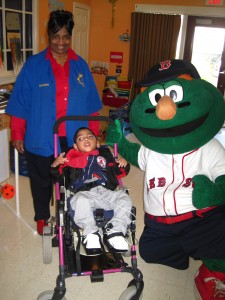
Share a favorite memory.
On of my favorite memories so far during my year of service is the afternoon when the Red Sox mascot Wally and friends from the Boston Red Sox visited SPARK. Our organization was part of their 100 Acts of Kindness, an initiative to give back to 100 area organizations in celebration of their team’s 100th year. They donated a brand new camera and compact printer to SPARK to help with our social media efforts. The best part of the visit, however, was watching Wally interact with the kids. Outside in our Nature Outdoor Classroom, the children were dancing, running, playing and giggling along with Wally. Although I am not from Massachusetts, I have quickly learned how passionate everyone is about sports and how much the Red Sox are an icon for this city. It was exciting to see the kids decked out in their Red Sox gear playing with Wally. It was also excited to develop a relationship with the Red Sox, because powerful community relationships are what help our organization strengthen and grown.
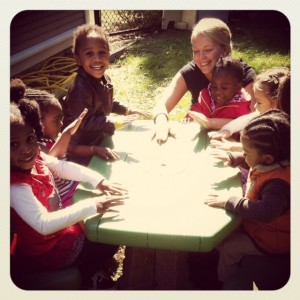
What have you learned from your experience? How has it affected your long-term goals?
I am only a quarter of a way into my year of service, and I have already learned a tremendous amount. I have learned a lot about the inner workings of a non profit organization. I have learned about development, fundraising, grant writing, developing community relationships, billing practices and social networking. Most importantly, I have been given the wonderful and powerful gift of perspective. One of the goals of the VISTA program is to help us to not only see, but to understand how the other half lives. We spend an entire year working full time for an organization that serves people living in poverty, and we are paid at the federal poverty line. The combination of our placement with our payment is designed to create an all encompassing experience. And it works. I don’t think I grew up spoiled, but I definitely grew up having everything I needed and nearly everything I wanted. Now, I work hard all day and make just enough money to pay the bills. And the experience really works. I am getting a glimpse into the struggles that millions of people, including many of the families at SPARK, face every single day. But I don’t have to support a family, deal with physical or emotional abuse, pay outrageous medical bills, use food stamps or grapple with the daunting prospect that my kids may get stuck in this cycle. I’ve got it good.
My experience so far has helped me to realize that I want to apply for a graduate program in Public Health. It has also exposed me to many new organizations and foundations, and helped me to foster relationships with people who will be beneficial to me in my future career.
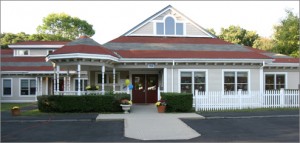
What was the most challenging part of your job?
One of the biggest challenges of my job is working so much for very little pay. A paycheck is a natural incentive for an individual to work hard, and when that paycheck comes in the form of a very small “living stipend”, it is challenging to stay motivated. However, most people who take gap years aren’t in it for the money. And, if you are serving with AmeriCorps, you definitely are not motivated by money.
I quickly found alternative ways to stay motivated and to reinforce my own work habits. I found that spending a little bit of extra time each week in the classroom with the children was all I needed to keep working hard. Spending extra time with the kids gave me an opportunity to see why my hard work was needed.
Do you have any advice for prospective gappers?
My biggest piece of advice is to TAKE A GAP YEAR. There is no rush to get a full time “real” job. And there is no rush to go straight to graduate school. Take some time to really figure out what you want to do with the rest of your life. All you need is that one amazing experience to help you figure it out, and most likely that experience won’t be found sitting in an office or in a classroom. I think it is important to spend your gap year doing something that will not only benefit yourself, but will benefit the greater good. The world is a very damaged place, and there is so much work that a prospective gapper could do it make it better! And in the end, you will better yourself too!
Check out more on Amanda’s blog!

